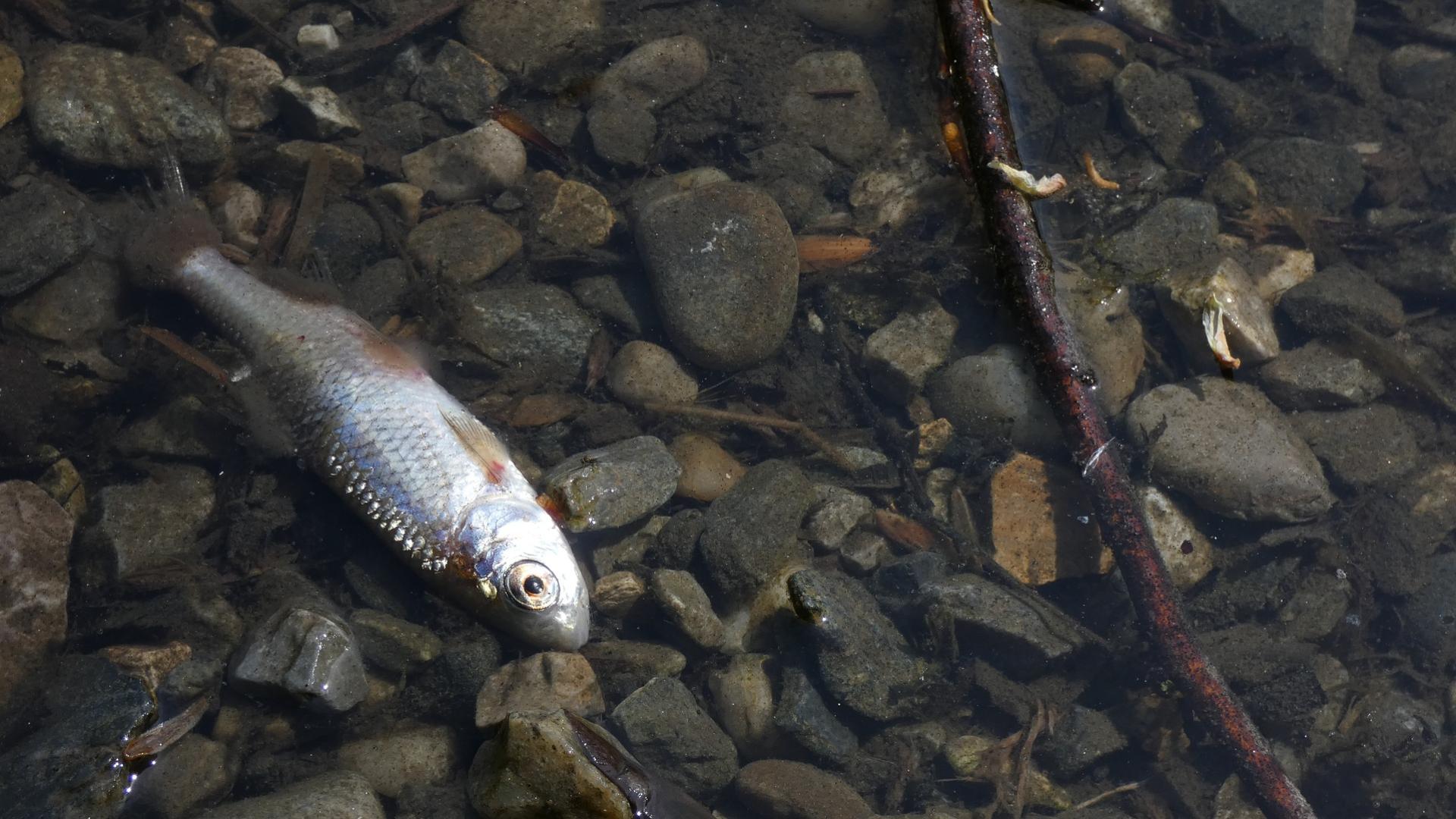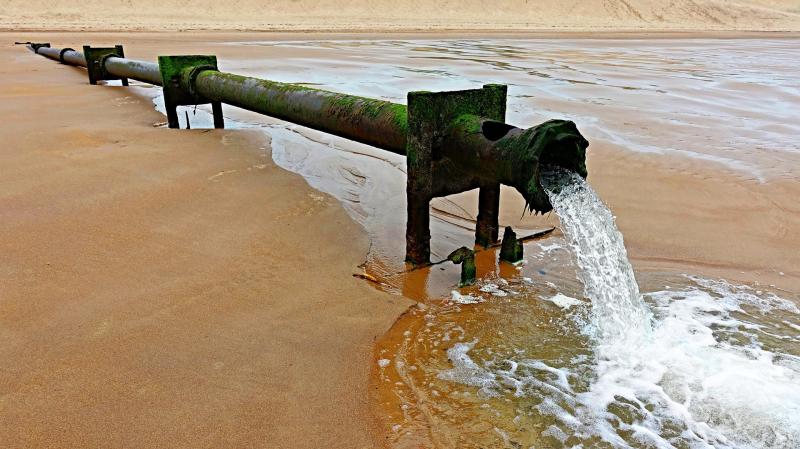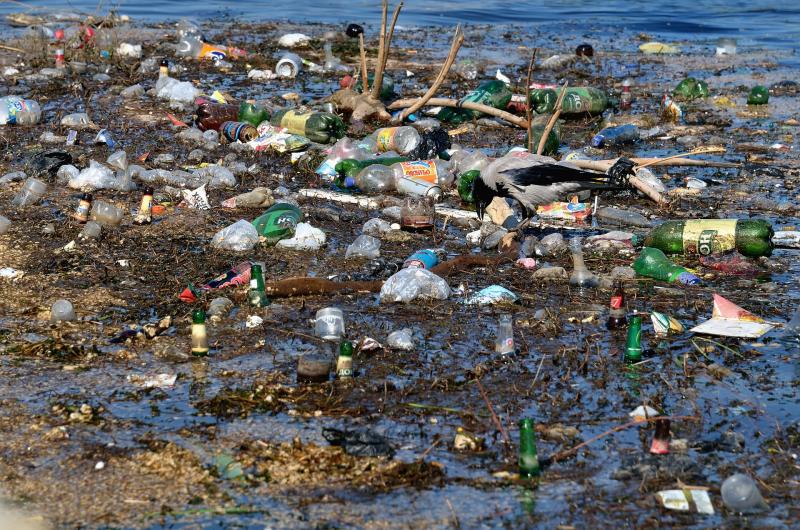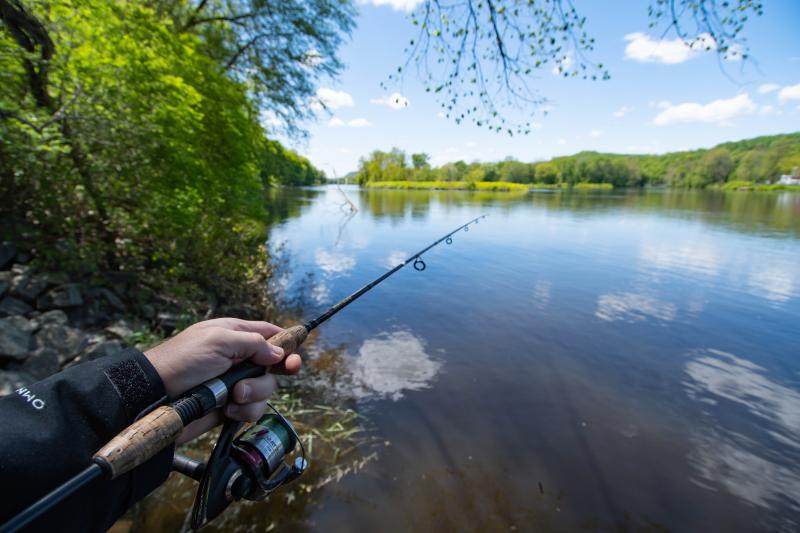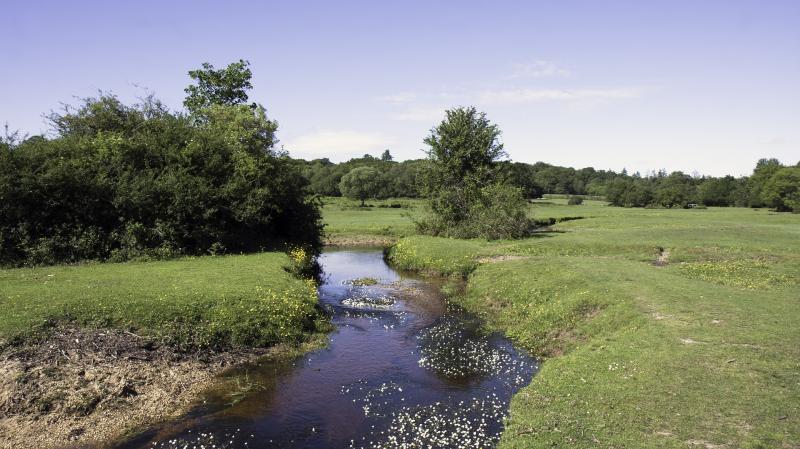Paul de Zylva12 Feb 2025
In 2014, Liz Truss once said that the government she served in as Environment Secretary would result in “great jobs and opportunities and fantastic beaches and rivers for families to enjoy.”
Liz Truss’s vision came as Friends of the Earth and others were telling ministers and regulators that we were seeing rising sewage pollution in rivers and seas. The reply? It wasn’t much of a problem.
When the ‘sewage scandal’ hit the headlines in 2021-22 the public dismay came as little surprise to us as it was just a matter of time before the news leaked out. By 2022, when Liz Truss was briefly Prime Minister, there were 2,026 water pollution ‘incidents’ including 1,658 sewage spills. Those official figures may be worse due to ministers’ cuts to proper monitoring of water pollution. That is just a snapshot of how sewage and other pollution was allowed to get out of hand for years before MPs, the media and the public expressed shock and anger.
Successive ministers are mired in the sewage scandal for 3 main reasons: for ignoring the problem for years, for restricting the role of regulators and, when they really woke up, for their actions being too little and too slow.
Proper regulation matters. That’s why this article explores how the government behaved for over a decade - and whether the new Labour government’s promises will make a lasting difference.
Turning a blind eye to water pollution
Sewage is bad enough, but it’s not the only pollutant harming water quality, wildlife and risking public health. Pesticides running off farmland and slurry from the growing number of livestock units intensively rearing chicken and pigs pollute even more than sewage and go largely unchecked.
There's also little monitoring of the pharmaceuticals, flame retardants, micro- and nano-plastics, industrial chemicals, construction waste, oil and other run-off from roads and other nasties being allowed to harm our rivers, freshwaters and seas. When MPs examined the issues, they reported: “So many emerging pollutants are being missed by inadequate and insufficient monitoring, and court actions against polluters have fallen dramatically.”
In their 2022 report into Water Quality in Rivers, MPs said their inquiry had “uncovered multiple failures in the monitoring, governance and enforcement of water quality”, adding that “there had been a lack of political will to improve water quality, with successive governments, water companies and regulators seemingly turning a blind eye to antiquated practices of dumping sewage and other pollutants in rivers.”
"Our beaches are cleaner than ever"
Yet in the 3-4 years before the sewage scandal hit the headlines in 2021-22, ministers, regulators and water companies were keen to claim in news articles, speeches and policy documents, that water quality in our rivers is “now better than at any time since the start of the Industrial Revolution”.
That’s a bold claim. How they knew the true state of water when proper monitoring of all pollutants and water quality had been cut is unclear. Scientists also disagreed.
Professor Mick Whelan of the University of Leicester said, “water quality is still ‘unacceptably poor’ in multiple areas across the UK, and there are signs that recent progress to tackle pollution has stalled.”
Professor Alistair Boxall of the University of York said, “we have very little understanding about the impacts of many contaminants because we just don’t look for them routinely” adding that “we now use more chemicals than ever before and many of these will end up in our rivers. The impacts of these chemicals are more subtle and will occur over a prolonged period of time but could be playing an important role in the loss of biodiversity in our rivers.”
Instead of rivers and bathing waters improving as Liz Truss claimed, the picture shows steady deterioration and little improvement. In England alone, most rivers aren't up to scratch either ecologically or chemically, as government data shows. A whopping 86% of England’s rivers fail the ecological standards needed to support thriving water life. That's bad, but it’s even worse than in 2014, when Liz Truss promised a clean future and (only) 71% of rivers failed to make the grade. To make matters worse, no English river passes the health test for contamination with chemicals.
The state of rivers and waters has been deteriorating for years, and ministers knew - because we and others told them. They also had the time and the means to act but didn’t until it hit and stayed in the news headlines.
The MPs' report makes sober reading. Scrutiny by parliamentary inquiries is an important democratic function, but why did it take an MP inquiry in 2021-22 to wake ministers up? Failure to listen and poor monitoring and enforcement highlight the importance of proper regulation and good governance for a thriving environment and healthy economy alike.
Failure to listen
People are often stunned to find that the dire state of our freshwaters and bathing waters isn’t new. As the water companies’ own trade body, Water UK, says:
“Over much of the last 100 years, our rivers have been in a state of crisis. As recently as the early 1990s, over a fifth of sewage was not being treated properly, killing huge swathes of life in oxygen ‘dead zones’. Many rivers became rich in toxic metals, agricultural slurry and industrial chemicals. Particularly from the 1950s, the numbers of invertebrates, fish and mammals in or around rivers started to plummet catastrophically.”
Ministers can't claim ignorance, because we and others have been warning them of the problems and the consequences for years. In 2017 for example, we told ministers and Ofwat, the economic regulator, that “dealing with pollution from sewer overflows should be a top priority”, given that sewage had affected 37,434 locations and 4,344 properties in England in 2015-16 alone. The response? First, we were told there wasn’t much of a problem and that spills were rare or ‘exceptional’. That reflects the legal position that some spills are permitted but only during exceptionally wet weather such as storms and heavy downpours. The, after being presented with evidence of sewage spilling even during dry weather, it was admitted that spills happened at any time.
The lack of proper monitoring of pollution spills and of water quality meant that no one - not least ministers, regulators and the water companies - really knew how often spills occurred. More importantly, no-one knew the harm being caused to rivers and seas, wildlife and potentially to people’s health. What is clear is that successive minsters have allowed the sewage scandal to engulf much of the nation, with discharges from town centres to coasts, and continuing spills reflect ministers' reluctance to act.
MPs also knew, although some prefer to blame water companies and ignore government indolence. 268 MPs blocked sensible House of Lords proposals that would've required water companies to act immediately to end harm from sewage. Instead, most MPs backed a weak plan that means rivers and seas will still be pumped and dumped with sewage in 2050 – 25 years away.
Who's responsible?
Both the Conservative and now the Labour government have been quick to push the blame onto the water companies. But ministers can’t wash their hands.
Water firms are obvious targets and are rightly in the firing line for failing to invest enough in preventing pollution, while paying their executives millions and their shareholders billions. In 2021, before the sewage scandal broke, water bosses pocketed £24.8 million in pay, benefits, bonuses and incentives for performance. Since water privatisation in 1989, shareholders have enjoyed a £72 billion dividend deluge. Nice work if you can get it. Notably, since the sewage scandal not just hit abut stayed in the news, water firms have been keen to claim they no longer pay big bonuses and dividends. The spin from water firms continues.
It’s convenient for politicians to blame water companies and forget the government’s role. While sewage spills are largely down to water firms’ negligence, they can’t be blamed for the chemicals, pesticides, road run-off and the many other contaminants that are also harming our rivers, freshwaters and seas. Past and present ministers can't dodge their ultimate responsibility for weakening rules and standards - and for allowing sewage dumping and other pollution to become the norm, not the exception.
The dire state of rivers, freshwaters and coastal bathing waters flows directly from ministers’ persistent reluctance to set and uphold good standards, and to resource the regulators to enforce them. The apparent inability of ministers to link these persistent failings with the ongoing presence of sewage and other pollutants in our waters is bad governance, plain and simple.
Even after the exposure of government, regulatory and corporate failure, it's still not clear that the plight of our rivers – which is just one indicator of the poor state of nature in the UK – was truly focusing ministers’ minds.
When the MPs’ report came out ministers said they were as shocked as everyone else. So why did the same concerned ministers continue to look to weaken or scrap standards designed to protect and improve our environment - something the new Labour government is now dabbling with (see below)?
By ignoring the problem and presiding over lax regulation, the UK risks regaining its 1970-80's title of being the "Dirty Man of Europe", earned when governments of the day also sought to evade standards for reducing air and water pollution from road traffic, pesticides and industry.
Northern Ireland’s pollution – a sobering lesson in lax regulation
Lax regulation, and attempts to dilute or discard standards altogether, could see England and Wales go the way of the least-protected environment in the UK – Northern Ireland.
The lack of an independent Environmental Protection Agency in Northern Ireland (and Whitehall’s reluctance to intervene) has seen decades of polluted rivers, freshwaters and wildlife havens, with little comeback for polluters who seem free to degrade water, soil and air quality and risk public health.
Most (90%) of Northern Ireland’s supposedly protected nature sites are harmed by animal slurry and pesticide pollution. Lough Neagh, an iconic site theoretically protected by international and Northern Irish law, is in poor condition due to barely regulated sand dredging. Fish and birds are disappearing as a lack of planning oversight or environmental assessment reduces water quality.
The independent Office for Environmental Protection (OEP) has repeatedly expressed concern about Lough Neigh’s plight, from saying it is “particularly concerned by failures to meet statutory deadlines... given the issues at Lough Neagh”, and “Unfortunately, we don’t have far to go to see the serious consequences when water quality is neglected, as the ongoing crisis at Lough Neagh shows”, to saying that the situation with is “...an illustration of wider problems across Northern Ireland...”.
Taming the regulator
Even when regulations do exist, as in England and Wales, the basic tests are whether they're good enough and whether they're being applied consistently.
The sewage scandal results from the reining in of regulations as ministers focused on "cutting red tape", reducing regulators’ funding and expertise, and letting polluters monitor themselves. Cowed by cuts and by ministers’ obsession with deregulation, the once world-leading Environment Agency has been reduced to a shadow of its former self.
Ministers cut grants for the Agency to carry out its environmental protection work by more than half within a decade. Grants fell from £120 million in 2010-11 to £56 million in 2020-21, and, within that budget, funds for enforcement dropped by 80% as the National Audit Office (NAO) reported to MPs:
“From 2010-2011 to 2019-20, the core grant-in-aid from which the Environment Agency’s enforcement work is funded reduced by 80%, from £117 million to £23 million.”
After the sewage scandal became nationwide news, ministers did give the Agency a short-term £21 million cash injection and some temporary staff for enforcement of pollution from farming and water firms. That top-up hardly makes up for a decade of cuts.
Shift from enforcement to voluntary action
The NAO also reported the Agency’s shift from prosecuting and fining polluters to asking them to undertake voluntary measures: “Formal cautions moved from being the most common type of action used in 2015 to none being applied between 2019 and 2021."
The Agency says the new "business friendly", softly-softly approach is more effective and means that between 2015 and 2020 "environmental groups, such as county wildlife and river trusts, have received over £13 million as a result of enforcement undertakings.”
Local environment action does need money, but instead of being given paltry payoffs from whatever polluters offer, community, river and wildlife groups may prefer decent funding for their efforts and plans, and to know proper regulations exist to help avoid as much pollution in the first place.
Cutting water testing
The Agency has also cut its water quality testing. In 2013 it took water samples at 10,797 locations, but by 2018 only 5,796 points were tested. Unsurprisingly, the Angling Trust said:
“The Environment Agency can’t say with any confidence what the state of our rivers is because they’re not monitoring them closely enough.”
Ironically, one effect of cuts is that, just when members of the public could be helpful eyes and ears in reporting any pollution they see, smell or both, the Agency has also had to scale back its ability to follow up on public tip-offs.
In its report to MPs, the NAO noted the Agency’s attendance at pollution incidents “has declined over the past five years”. Even allowing for reduced inspections during the pandemic, the Agency now only attends incidents it thinks are serious.
A lack of responsiveness to people who bother to report problems erodes public confidence, especially when most pollution comes not from dramatic incidents but rather from routine sewage spills and the drip-drip of pesticides and other pollutants the Agency hardly tracks.
Cutting "red tape"
A toothless watchdog suits those who regard regulation as a dirty word. But it's hard to see how others gain – whether anglers, bathers, fishing crews, rowers, paddle boarders or tourist-dependent areas and communities trying to bring back nature in their area.
But enough hard-line politicians, lobbyists, and what Liz Truss called “vested interests dressed up as think tanks”, still deride regulation as "red tape", and push for "bonfires" of regulations and more constraints on regulators in the belief that this'll see business boom without hindrance.
Politicians who like to look tough by cutting budgets and services and banishing "red tape" may calculate that pollution, fewer species and harm to habitats and health won't bother or be noticed by the majority. After all, the consequences of cuts and weak regulation rarely make the headlines, although sewage becoming a touchstone issue may have changed that. Certainly blanket news coverage saw politicians and regulators back-peddling to claim they "take the issue very seriously" and are "doing all they can" to clamp down on the pollution they let happen in the first place.
Regulation can be good for business
Outmoded claims that protecting our environment somehow prevents economic growth and social progress still find their way into lobbyist and think tank briefings, and often end up in ministers’ speeches if not government policy, as we are now seeing from the 2024 Labour government. Yet many reputable companies know that proper regulation is central to the certainty and level playing fields they say they need to plan and compete fairly.
In a 2017 study, "Help or Hindrance?", executives said the “impact of environmental regulation on the competitiveness of their business was positive overall”. That could be because higher environmental standards and regulations tend to drive research and innovation in new products and clean technologies. In turn, these support the shift to clean industries and services, with new skills and jobs in businesses and economies that no longer profit from pollution and environmental decline.
Those who still want to weaken or cut regulation should spell out how regulatory failure that allows sewage and other pollutants to harm our rivers and seas for years is good for our economy. They should also explain to those living and trading in hard-pressed coastal areas, who rely on fishing, tourism and the "visitor economy", how they benefit from sewage-blighted seas and beaches.
Blighting beaches and local economies
In July 2021, for example, the Bournemouth Echo reported the effects on local firms and fishing crews:
"Independent businesses and fishermen have told the Daily Echo how their livelihoods have been affected by the disposal of sewage into Poole Bay and Poole Harbour. Owner of Dorset Oysters Pete Miles said this is not the first time issues have surfaced. 'They keep building new developments but are unable to dispose of the waste effectively so sewage is getting pumped into the water. It’s bonkers,' he said."
In 2022’s peak August holiday season, 18 of Cornwall’s beaches were off limits due to sewage. In Wales, sewage forced closure of 6 beaches along Cardigan Bay’s 80-mile coastline and Porthcawl Surf School shut for 2 days. In Lincolnshire, visitors were advised to avoid beaches at Ingoldmells and near Cleethorpes and Grimsby. Brighton Beach in Sussex closed for the bank holiday weekend.
Into September and sewage warnings were still being issued for beaches at Walney in Cumbria and at St Annes in Lancashire. The Agency even “advised against bathing” at Blackpool Pleasure Beach.
Clean water - but not yet
As pollution continues and water companies argue for more money, the public and media remain sceptical about government claims to be acting tough, when they see sewage being discharged day in and day out, as though this is now the default.
It doesn’t help that in 2023 the Conservative government said rivers, freshwaters and coastal waters in England will not now reach ecological standards by 2027, a date it has had decades to hit.
The new target date of 2063 means that a child born in 2023 will hit their 40th birthday by the time the government eventually delivers on the clean-up it first promised in the second decade of the 21st century.
That clearly outstrips the government’s 2018 pledge to leave the environment in a better state within a generation – by 2042.
Even the government’s short term pollution targets look paltry. As stated earlier, farming is a greater source of pollution than sewage but the government's aim was only to cut pollutants running off farmed fields by 10 pe goer cent by 2028.
What else did the government do?
When Conservative ministers eventually woke up to the sewage scandal, their late actions turned out to be inadequate – on monitoring pollution, on fines for polluters, and on the powers of regulators.
1. Monitoring pollution
“It is this Government who introduced the monitoring that allows us to know what is going on.”
That's the boast to MPs by Ranil Jayawardena MP, briefly Environment Secretary under Liz Truss, but this must be seen in the context of a decade of cuts that left the Environment Agency weak and reliant on water companies and polluters monitoring themselves, which isn't independent, and remains to be seen whether it’s truly transparent or reliable.
2. Fines for polluters
“We have legislated to issue unlimited fines through a criminal process, and we will not hesitate to do more.”
That's what Mr Jayawardena also told MPs, which is good. But the tough talk comes after years of ignoring conservation groups and residents who've been telling ministers and regulators that sewage spills are no longer an exceptional problem but rather happen almost every time it rains - and even when it doesn’t.
3. Regulators’ powers
The government also said it would: “Set strategic priorities for Ofwat which made protecting and enhancing the environment a key priority for the first time.”
Better late than never, but when the poor state of our seas and freshwaters isn't new and Ofwat formed in 1989 to act as the economic regulator of newly privatised water and sewerage companies, why is our environment only "a key priority" now?
4. Accountability
The government also claimed: “Government and regulators also continue to hold the water industry to account on a scale never seen before” and “We are holding water companies to account over illegal discharges, with a record £90 million fine handed out in July 2021.”
Polluters should pay but when sewage has been polluting for years, why are fines only reaching record levels now? Why have both Ofwat and the Environment Agency been found wanting? Ultimately, both report to ministers.
Do polluters pay enough?
After the record £90 million fine handed to Southern Water in 2021, the next highest is Thames Water’s £18.75 million fine in 2017. Those 2 fines stick out like sore thumbs, and yet the government boasted about the size of fines in its response to MPs on their Water Quality in Rivers inquiry:
“Since 2015 the Environment Agency has brought 48 prosecutions against water companies, securing fines of over £137 million.”
Most of that £137 million is those 2 large fines, which together make up £108.75 million. That leaves £28.25 million in 46 smaller fines between 2015 and 2021, an average of £4.7 million a year or about £100,000 per fine. That seems like a mere rounding error, and raises questions about whether polluters have underpaid and, given the lax state of regulation, monitoring and investigation, whether many have polluted for free?
In October 2022 in The Telegraph, Ranil Jayawardena announced that the £250,000 cap on fines for "serious" pollution by water companies would rise to £250 million:
“Ranil Jayawardena reveals how The Telegraph’s Clean Rivers Campaign has inspired him to take a tough line on cutting pollution [...] Fines for water companies who seriously breach rules by dumping sewage in rivers and seas will be increased 1,000 fold, the new Environment Secretary has revealed.”
Headline-grabbing high fines are meaningless if regulators lack the means and the money to properly monitor water quality for pollutants and until they're free to bring cases without ministerial meddling.
But bill payers have already paid
The mess ministers have presided over is also illustrated by an ongoing criminal investigation into sewage treatment works possibly polluting above permitted levels (started in 2022 and still underway in 2025).. That matters because of the pollution, of course, but also because of the way our water bills are set.
Every 5 years, Ofwat’s Price Review agrees the pollution control and environmental actions water companies will carry out over the next 5 year period. The cost of the agreed measures is then reflected in our bills. The cost of the actions agreed under Ofwat’s latest Price Review (PR24) will reflect in higher water bills from 2025-2030..
Crucially, because the agreed actions are geared towards what pollution is permitted, any breaches above authorised levels mean that our money is being banked without the pollution being curbed. When bill payers have already paid for rivers to be cleaned up, should they be expected to pay more?
Government’s weak action plan
On Friday 26 August 2022 – the eve of the bank holiday weekend – Conservative ministers slipped out their Storm Overflows Discharge Reduction Plan in which they
- claimed their plan "sets stringent new targets to protect people and the environment”, which made it sound like a cure-all when regulations and regulators had actually been weakened and the plans themselves were too weak and too slow.
- set a “long-term ambition of eliminating the harm” which meant that almost half of sewage outfalls will still be polluting in 2040.
- said spills will also continue up until 2050 if there's “unusually heavy rainfall”, which seems likely given the harsher and more frequent storms predicted with untamed climate change.
- said they planned for rivers and seas in 2050 to be in the improved condition they should already be in – and would've been had they acted properly, sooner. The claim is hardly a watershed moment.
Good governance means anticipating and avoiding problems, and not being late to the party with inadequate action. Is it possible for ministers to get behind proper regulation that prevents persistent pollution in the first place?
Clear compliance would see a cleaner environment and would be a more effective solution than lax enforcement and polluters self-regulating. That would avoid the need for after-the-event checks and fines, however huge they get.
Clear solutions new ministers should adopt
Instead of snail’s pace action while reaching to deregulate even more, ministers must now:
1. Invest in comprehensive monitoring
The nation needs an independent, comprehensive system of real-time, round-the-clock pollution monitoring for sewage and for the cocktail of other contaminants. Monitoring matters because it'd help ministers track sewage and pollution to the source and know what harm is being done.
That would help reduce pollution incidents so that problems are solved, avoiding the need for costly clean-ups all round and helping ministers hit their own aims for a healthy water environment.
A big bonus of proper water-quality testing would be vital early warnings of diseases, infections and other health threats such as COVID-19, which was detected in waste water months before it was picked up in clinical tests.
2. Resource the regulators
The government must restore the ability of the Environment Agency and other bodies to do their jobs properly. Cutting and constraining regulators and regulations has been a false economy that also hinders ministers from making informed decisions based on good evidence.
People carrying out their own water testing and other citizen science sampling has a role, but it's no substitute for the proper job being done by a fully functioning Environment Agency.
3. Drop anti-nature and "red tape" rhetoric
Blaming environmental regulation and tough talk of "cutting red tape" has nothing to do with diligent, evidence-based decision making, which is what underpins sound stewardship and good governance.
Costly cuts and deregulation don't make a good basis for businesses to operate fairly and responsibly. They also undermine people’s voluntary effort to improve their area and make a mockery of thousands of volunteers and community groups who are already working against the tide to clean up local rivers and beaches. They haven't gained from previous weakening of regulation, and further deregulation is unlikely to help.
Notably, the pollution problem existed well before the UK left the European Union, and during and since the 2016 Brexit referendum ministers pledged that the UK’s environment standards would match or exceed the EU’s, including those the UK helped design when a member, such as the vital Habitats Directives the UK now wants to scrap.
Failure to regulate helps edge nature closer to the edge – another sign of bad governance.
Is the Labour government doing what’s needed?
Labour ministers often refer to how they're having to deal with a dire inheritance from the last Conservative government and this is as true of the state of the water industry as other bad hands passed on to the new government.
But the government can end the era of failure, bad governance and weak regulation. Will it do so, or will it deregulate for economic growth at any cost?
In the first line of his first speech on 22 May 2024, soon after Rishi Sunak announced a General Election for 4 July, Sir Kier Starmer said: "Look around our country. The sewage in our rivers..."
Then, in June 2024, Sir Kier referred to the need for proper regulation: "You ask people out across the country 'what's of concern for you' and a number of things come up - the cost of living always, NHS always, but also increasingly mortgage increases and the fact that people are really fed up that the Government has allowed our waterways, our streams, our rivers and our seas and beaches to have got in such a terrible condition.
"We need to address that. Amongst the ways that we can address that are better enforcement of the regulations that we've got. I think we need to look at new regulations on top of that, and then liability to the top of the business that's running the show here."
We agree.
Back into the murky depths?
The new government was quick to introduce new legislation on the water companies and to launch a Commission into wider water issues. However, it's as yet unclear whether these will effectively address the root causes of rivers and waters being in poor state.
Meanwhile, early in 2025, the government seemed to slip with persistent inaccurate claims by Prime Minister Starmer, Chancellor Reeves, and even Environment Secretary Reed, that environment regulation and nature are a block to development and growth.
Ministers splashing about in the same murky depths as their predecessors will not help. The government (both the last and the new one) cannot get away from the fact that had everyone acted years ago everyone would be benefiting now. Instead, ministers took off on a deregulatory detour, the costs of which we see today in the poor condition of water which contributes to the declining state of nature in England and the UK.
We’ve had over a decade of failure and time is running out. No amount of re-heated speeches and re-hashed plans will deliver if new ministers and their favoured extremist think-tanks continue to pursue an ideological obsession with blaming the environment, cutting standards and undermining regulators. England’s waters will stay murky.
As this story about the government’s approach to the water industry demonstrates, proper regulation and good governance avoids and prevents harm, supports aims for public health, a thriving environment and makes economic and business sense.


